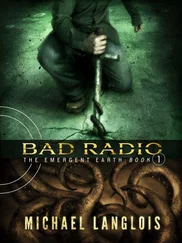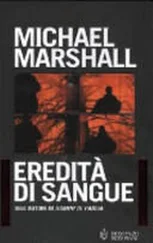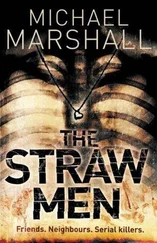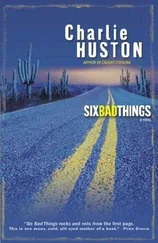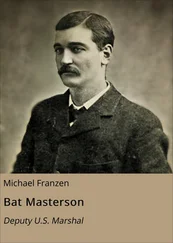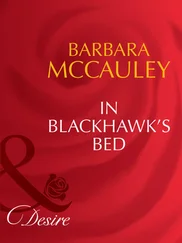
MICHAEL
MARSHALL
BAD THINGS

For Stephen Jones
Who knows the darkest parts of the woods – and the path from there to the pub.
It is the practice of evil, and hence, in a sense, the inhuman, that is the distinctive mark of the human in the animal kingdom.
Jean Baudrillard
Cool Memories V
Epigraph It is the practice of evil, and hence, in a sense, the inhuman, that is the distinctive mark of the human in the animal kingdom. Jean Baudrillard Cool Memories V
Prologue
Part 1
Chapter 1
Chapter 2
Chapter 3
Chapter 4
Chapter 5
Chapter 6
Chapter 7
Chapter 8
Chapter 9
Chapter 10
Chapter 11
Chapter 12
Chapter 13
Chapter 14
Chapter 15
Chapter 16
Chapter 17
Part 2
Chapter 18
Chapter 19
Chapter 20
Chapter 21
Chapter 22
Chapter 23
Chapter 24
Chapter 25
Chapter 26
Chapter 27
Chapter 28
Chapter 29
Chapter 30
Chapter 31
Part 3
Chapter 32
Chapter 33
Chapter 34
Chapter 35
Chapter 36
Chapter 37
Chapter 38
Chapter 39
Chapter 40
Chapter 41
Chapter 42
Chapter 43
Chapter 44
Chapter 45
Chapter 46
Chapter 47
Acknowledgements
By Michael Marshall
Copyright
About the Publisher
It is a beautiful afternoon in late summer, and there is a man standing on the deck of a house in the woods a fifteen-minute drive from Roslyn – a nice, small town in Washington State. It is a fine house, structured around oak beams and river rock and possessed of both cosy lateral spaces and cathedral ceilings where it counts. The deck is wide and deep, wrapping around the whole of the raised first storey, and points out over a slope where a woman sits in a rustic wooden chair, the product of semi-local artisanship. She is holding a baby who is nine months old, and at the moment, miraculously, peaceably quiet. The house and the five acres around it cost a little under two million dollars, and the man is happy to own it, and happy to be standing there. He has spent much of the day in his study, despite the fact it is a Saturday, but that's okay because it is precisely this willingness to work evenings and weekends that puts you in a house like this and confers the kind of life you may live in it. You reap, after all, what you sow.
The deck has a good view toward a very large, wooded lake the locals call Murdo Pond, sixty yards away down the wooded slope, and a little of which – the portion that lies within his property lines – the man guesses he owns too, if you can be said to own a lake. He is wearing a denim shirt and khaki shorts, and in his hand is a tall, cold glass of beer, an unusual occurrence, as he seldom drinks at home – or much at all, unless business demands its shortcut to conviviality – but which feels deserved and appropriate now: what else do we strive for, after all, if not for such an indulgence, on the deck of such a house, at the end of such a day?
He can see that his wife is without a drink, and knows she would probably like one, and will in a short while call down to ask if he can fetch her something. But for a few minutes longer he stands there, feeling more or less at one with the world, or as close to that state as is possible given the complexities of quotidian existence and the intransigence of people and situations and things. Just then a breeze floats across the deck, bringing with it the faint, spicy smell of turning leaves, and for a moment the world is better still. Then it has gone, and it is time to move on.
The man opens his mouth to ask his wife what she'd like to drink, but then pauses, and frowns.
‘Where's Scott?’ he says.
His wife looks up, a little startled, having been unaware of his presence on the deck.
‘I thought he was with you.’
‘Working?’
‘I mean, indoors.’
He turns and looks back through wide-open doors into the living room. Though there is evidence of his four-year-old son's passing – toys and books spread across the floor as if in the wake of a tiny hurricane – the boy is not visible.
The man goes back inside the house and walks through it. Not quickly yet, but purposefully. His son is not in his room, or the kitchen, or the den. Nor is he hunkered down in the stretch of corridor near the main entrance on the other side of the house, a non-space which the boy has colonized and where he is sometimes to be found frowning in concentration over a self-imposed task of evident fascination but no clear purpose.
The man returns through the house and out onto the deck, and by now he's moving a little more quickly.
His wife is standing, the baby in her arms.
‘Isn't he there?’
The man doesn't answer, judging his speed will answer the question. It does, and she turns to scan her eyes around the lawns, and into the woods. He meanwhile heads round to the far right extent of the deck. No sign of the boy from up there. He walks back to the other end and patters down the cedar steps.
‘When did you last see him?’
‘I don't know,’ she says, looking flustered. He realizes briefly how tired she is. The baby, Scott's little brother, is still not sleeping through the night, and will only accept small hours' comfort from his mother. ‘About half an hour ago?’ she decides. ‘Before I came out. He was in, you know, that place where he sits.’
He nods quickly, calls Scott's name again, glances back toward the house. His son still does not emerge onto the balcony. His wife does not seem overly concerned, and the man is not sure why he does feel anxious. Scott is a self-contained child, happy to entertain himself for long periods, to sit reading or playing or drawing without requiring an adult within earshot. He occasionally goes for walks around the house, too – though he keeps to the paths and doesn't stray deeper into the woods. He is a good child, occasionally boisterous, but mindful of rules.
So where is he?
Leaving his wife irresolute in the middle of the lawn, the man heads around the side of the house and trots down the nearest of the ornamental walkways that lead into the woods and toward the remains of the old cabin there, noticing the path could do with a sweep. He peers into the trees, calls out. He cannot see his son, and the call again receives no answer. Only when he turns back toward the house does he finally spot him.
Scott is standing fifty yards away, down at the lake.
Though the family is not the boating kind, the house came with a small structure for storing water craft. Next to this emerges a wooden jetty which protrudes sixty feet out into Murdo Pond, to where the water runs very deep. His son is standing at the end of this.
Right at the very end.
The man shouts his wife's name and starts to run. She sees where he is headed and starts to walk jerkily in the same direction, confused, as her view of the jetty is obscured by a copse of trees which stand out dark against water that is glinting white in the late afternoon sun.
When she finally sees her son, she screams, but still Scott doesn't react.
The man doesn't understand why she screams. Their boy is a strong swimmer. They would hardly live so close by a large body of water otherwise, even though the lake always feels far too cold for recreational swimming, even in summer. But he doesn't understand why he is sprinting, either, leaving the path and cutting straight through the trees, pushing through undergrowth heedless of the scratches, shouting his son's name.
Читать дальше





